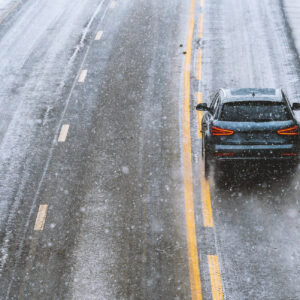Car collisions are responsible for 1.3 million deaths annually around the globe. While there are always risks to anything we do, there are many cases where serious injury and vehicle damage could’ve been easily avoided if the person behind the wheel acted more responsibly and prioritized road safety.
To avoid being another statistic, drivers need to learn about the top causes of fatal crashes and develop good driving habits to avoid them.
Top Causes of Fatal Crashes

There are different recorded reasons for fatal crashes on the road. However, some of the most common ones are the following:
Driving Under the Influence
Driving under the influence (DUI) is an offense where you drive a vehicle while impaired by alcohol or drugs. It’s one of the leading causes of fatal crashes and takes the life of one driver every 45 minutes, which is roughly over 30 people per day.
According to the National Highway Traffic Safety Administration (NHTSA), more than 13,000 people perished due to DUI in 2021.
Driving intoxicated is illegal in every state in the country, and first-time offenders may face heavy fines, felony offenses, loss of license, and more.
Speeding
There’s a reason why speed limits are enforced on roads and highways. Going over them is dangerous, as you’ll have little to no control of your vehicle, or you’ll find yourself with hardly any room on the road.
Going beyond speed limits is unsafe because it could lead to collisions and other traffic-related accidents. According to the NHTSA, speeding caused at least 10,000 fatal injuries in 2021.
The sad thing about this is that speeding doesn’t save that much time. For a 15-mile trip with a speed limit of 55 mph, going 10 miles over the limit only shaves two minutes off your trip.
A 500-mile trip will save you roughly 12 minutes on a one-hour drive. The minimal time gained is not worth increasing the risk of injuring yourself and others.
Reckless Driving
The lines between speeding and reckless driving are blurry. However, the latter can take poor habits to another level. It could include neglect of the law, as some drivers may see it fit to run red lights or tailgate other drivers.
According to the AAA Foundation for Traffic Safety, aggressive driving leads to at least 1,500 fatal car injuries and accidents annually. It’s a dangerous habit to pick up, and it could lead to jail time and heavy fines.
Some drivers are constantly texting while behind the wheel. According to the NHTSA, an estimated 3,300 fatalities in 2022 occurred due to distracted driving.
There are three types of driving distractions:
- Visual – Not looking at the road
- Manual – Taking your hands off the steering wheel
- Cognitive – Thinking about other things
You can prevent distracted driving by focusing on the road. That includes avoiding texting, choosing music, eating, or taking a phone call. As a passenger, you can also tell the driver to keep his mind on driving if you notice they’re disengaged.

Poor Weather Conditions
While a majority of traffic accidents are due to the driver, there are some things we can’t control. An example is the elements and how poor weather conditions negatively affect driving.
For one, rain, snow, and fog are natural, and we all come to expect them at some point throughout the year. Some places more than others, but generally, adverse weather conditions shouldn’t come as a surprise.
Road Rage
It’s easy to get caught up in our emotions on the road. However, it shouldn’t drive and control our actions behind the wheel. Some drivers make it a point to intentionally perform dangerous acts, such as sudden braking or tailgating.
According to data, over 12,000 road injuries occurred in the last seven years in the US due to road rage. Some battles aren’t worth the fight. Road rage is easily avoidable by removing yourself from the situation.
How to Avoid the Top Causes of Fatal Crashes
Saving lives and avoiding the top causes of fatal crashes involves preparation and the proper mindset. To better understand how to prevent avoidable road injuries and accidents, follow our tips below:
Sober Up Before Driving
It might seem like it’s more convenient to drive to and from a party, but the numbers tell a different story. There have been countless unnecessary and avoidable deaths due to DUIs. So, if you want to enjoy yourself, call a cab or assign a designated driver.
If you’re the host, make sure everyone goes home with a sober driver. It’s still your responsibility to ensure your guests get home safely.
Leave Early/Check Road Conditions Beforehand
A common excuse for speeding is the fear of running late for work or an important appointment. Therefore, the best way to avoid it is to plan your trips carefully and leave early to avoid gridlocks.
It’s also a good idea to check if there are any road closures or repairs along your usual route, so you can reroute and manage your time on the road wisely.
Check the Weather Report
Poor weather conditions can’t be avoided, but they can be prepared for. Make it a habit to check the weather report before leaving, especially for long drives. Knowing when snow or rain is coming could save lives.
Of course, this should also come with quick vehicle checkups. Test the headlights and brakes before leaving for trips as they’re both vital to driving in situations when there’s low visibility.
In severe weather conditions, it’s best to avoid driving altogether if possible. Slippery roads can be hard to navigate, so save your trip for another day.
Practice Defensive Driving
Practicing defensive driving could save countless lives. This refers to driving techniques that help reduce the risk of collisions with other vehicles on the road. Some examples of defensive driving techniques include yielding at intersections, driving in a single lane, and knowing how to act when faced with a road hazard.
Preparation is also a big part of safe driving. Aside from driving within the speed limit and avoiding distractions behind the wheel, things like fastening your seat belts and staying on top of your vehicle’s maintenance can reduce your risk of being in trouble on the road.
Any information provided on this Website is for informational purposes only and is not intended to replace consultation with a professional mechanic. The accuracy and timeliness of the information may change from the time of publication.















